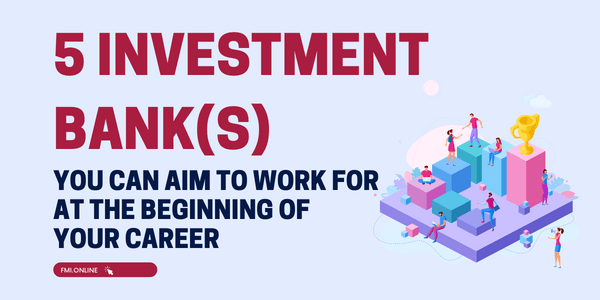Have you ever imagined turning a $20 million investment into $50 billion in less than 15 years? That was a mega deal led by Softbank in the early years of Alibaba – one of the most successful Private Equity (PE) deals of all time.
PE is one of the fastest growing industries in the financial sector and is a land of plenty for many finance professionals. If you aspire to be in PE, there has never been a better time to make the move. Let’s understand why and how to enter this lucrative industry.
What is PE investing
Private equity is a category of capital investments, where you own a piece of a business or institution that is not publicly traded or listed on the stock exchange – a private company. It is one of the most attractive alternative investment options for institutions looking to diversify their portfolios and get better returns than public markets.
How to enter PE
Having the right background is very vital to break into the world of PE. Some of the most common ways of getting into the industry are as follows:
Transitioning from investment banking or consulting
Many PE employees have a background in investment banking or consultancy. You can also begin your journey towards a private equity career by enrolling in a beginner level yet in-depth investment banking course designed by FMI.
PE firms prefer employees with an investment banking or consulting background due to their ability to work long hours, deal with challenges, think creatively, and network with relevant stakeholders. Bringing on people who have already developed and adapted to such a working environment and learned the basics elsewhere reduces their chance of committing mistakes that might cost the company.
Getting into PE right after college
Another way to start your career in PE is through internships right after college. However, both the number of PE firms that offer internships and the number of internships that they offer are very limited and hence, competitive. As an alternative, one could also consider internships in related fields, such as investment banking, consultancy, venture capital or asset management. Internships in these industries are also limited, but more common than in PE.
Skills Needed to Get into PE
Once you know the educational or professional avenue you will be taking to get into PE, here are some skills you need to hone to get into this sector:
Networking
Since this is a highly competitive industry, networking with the right people can not only give you an edge over the pool of candidates but help you understand what the work environment and expectations are. You can use tools like LinkedIn and career recruitment events to connect with other Private Equity individuals. This network will be useful even after you start working in this domain.
Persistency
Maintaining constant contact with companies to ask about open positions or simply applying for interviews without losing focus or interest is arguably the most critical skill to land a job. The chances of getting in touch with a senior employee or HR representative at a major private equity firm and receiving a response are usually very low. Hence, you must remain persistent until you get something favourable.
Technical skills
Once you have been noticed and have a chance to secure your dream job, you must prove that you have the determination and passion required to succeed in the industry. You should be well-versed in topics such as valuations, financial projections, ratios & analysis, business models, and other similar concepts. Aside from financial concepts, you should also familiar with basic business frameworks.
Conclusion
In a nutshell, PE is an in-demand and sought-after career choice. To make it in this field, you must be willing to start early and with utmost passion. You can take the investment banking route or venture out right after college through internships. You will need to demonstrate that you have a solid academic background, an unwavering passion for PE, and the ability to build and maintain networks.












 60+ hours
60+ hours 9 courses
9 courses



